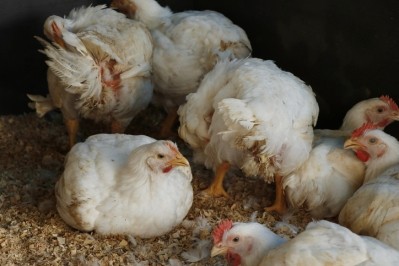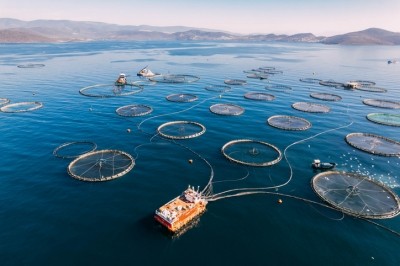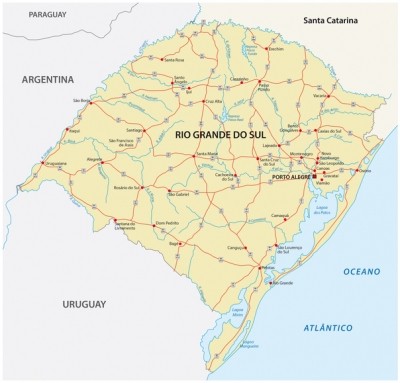Soy Innovation Challenge winner revealed

Clean Label Solution has emerged as the winner of the contest, which attracted nearly 70 candidates from around the globe.
The Ithaca, New York based startup has been recognised for its product, Bi-Pass Pro+. It is aimed at enabling beef and dairy cows to digest soybeans more efficiently, both reducing the need for palm oil in cow feed and reducing methane emissions.
The Soy Innovation Challenge is a collaborative effort led by the United Soybean Board, the Yield Lab Institute, and other partners. That initiative responds to the burgeoning use of soybean oil as a key component in renewable diesel and sustainable aviation fuel within the US, a trend that is anticipated to significantly increase the production of soybean meal (SBM), potentially leading to an oversupply in the industry. The challenge aims to confront this issue directly by focusing on enhancing the utilization and value of SBM.
Clean Label Solution also recently secured $250K after participating in the Grow-NY business competition.
“Securing victory in the Soy Innovation Challenge unlocks the immense potential of the soybean market, not only in terms of methane reduction but also economically. Our breakthrough soy-based feed addresses environmental concerns by reducing methane emissions and presents lucrative opportunities for sustainable agriculture and economic growth,” said Dr Mohammad Arshadi, founder and CEO of the winning startup.
Arshadi earned his PhD in organic chemistry from Isfahan University of Technology in Iran before pursuing postdoctoral research at Cornell from 2017 to 2020. Inspired to optimize protein digestion in dairy cattle, he co-founded Clean Label Solution in 2019.
“Dairy farmers have observed that at least 10 to 20% of the protein in traditional soy-based feed is lost or wasted as manure due its poor digestibility and its inadequate processing inside the cow’s rumen,” he told FeedNavigator on call with the publication last month.
The startup’s proprietary fermentation process also addresses common toxicity issues in cows linked to soybean oil by fostering a healthier rumen microbial population, providing a methane emissions reduction benefit as well as enhancing digestion efficiency, he continued.
“The methane emissions data and microbial population of regular roasted soybean and Bi-Pass Pro+ have been evaluated and compared by Fermentrics, a lab based in Ottawa in Canada. Our product, via our fermentation process, results in an increase in bacteria that inhibit methane release in the rumen.”
Market success
The soy-based dairy product has seen market success.
“Last year we sold over 4,000 tons of our product to dairy farmers in upstate New York. Their production costs were reduced by around $0.30 to $0.50 per cow per day because they removed palm oil from the ration and use our product as a source of the protein and fat. Those farmers also saw an increase in milk and milk fat production,” reported Arshadi.
Partnership with a local soy producer allowed him access to beans and a logistical network for delivery of the product to those dairy operations.
He is now collaborating with other soy and dairy industry stakeholders in upstate New York with the aim of expanding production capacity and market reach.
Arshadi hopes to eventually develop soy-based solutions for beef and aquaculture, targeting sectors such as salmon and shrimp farming.
Worthy contenders
The runners-up in the Soy Innovation Challenge include:
EDEN Concept Fill: The company has developed Cellyfill cushion products as a fully sustainable alternative to polyurethane foam, the petroleum-based industry standard. Cellyfill is a cellulose-based material from soy hulls that the producer claims gives manufacturers and consumers a lower-cost, high-quality, sustainable option for soft fill in furniture, mattresses, and other products. – First runner-up awarded $50,000.
NeuEsse: The firm has created a human skin substitute, OmegaSkin, made from soy protein. OmegaSkin becomes a scaffold for the body to regrow its skin over serious wounds or burns with minimal to no scarring, which is said to offer a more cost-effective medical solution than current treatments like skin grafting or advanced cellular therapies. – Second runner-up awarded $25,000.
Renewable Green Composites: This business creates plastics and polymer building blocks from soybean meal to improve the sustainability of some plastics. Its soy-based plastic beads and additives can be melted and molded into various non-durable outdoor applications, including golf tees, lawn toys and more. – Third runner-up awarded $20,000.
“The Soy Innovation Challenge has been a fantastic effort to showcase the most promising and innovative technology to promote the utility of soy in markets we know like feed, food, and fuel and new markets in consumer-packaged goods (CPGs), medicine, and non-food uses. We look forward to seeing where these finalists go and how they bring their soy innovations to market,” said Brandon Day, COO of The Yield Lab Institute.









